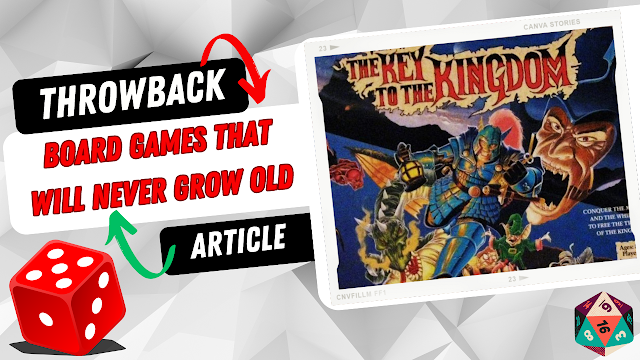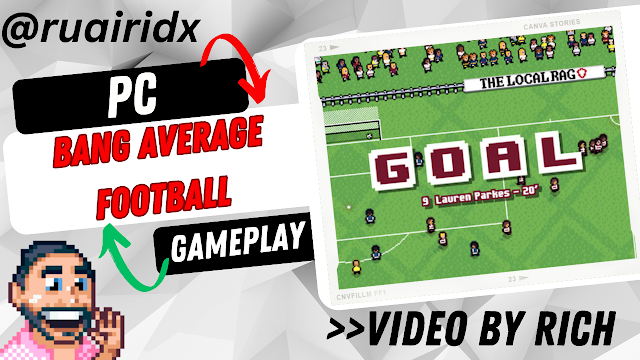A huge thank you to Blip Blop for their insight, knowledge, and assistance – without them, this article would not have been possible.
A record label founded by multiple Grammy award-winning musician and composer Nile Rodgers in 1998, Sumthing Records – and the distribution arm, Sumthing Distribution – was at one point the largest African-American-owned distribution company in America, created to produce and distribute video game music.
The label – mainly through the trading style of Sumthing Else Music Works – released music from some of the largest games and franchises of the era, before closing suddenly in January of 2019, with Nile Rodgers’ below statement on his official website:
A Message to my Sumthing Family and Friends-
"Twenty years ago, I created a label to produce and distribute video game music, a then unexplored genre in the industry. Over the years Sumthing Else Music Works became the flagship label for this inventive, beautiful and compelling music. It even led me to produce volumes one and two of Halo 2, as well as to write and perform "Never Surrender," on Halo Volume I.
Now, the demands of my overwhelming recording and touring schedule prevent me from dedicating all the personal time and resources that Sumthing deserves. Regretfully, I have decided to suspend all of Sumthing's operations for the foreseeable future.
I hope that you will stay in touch with me as my journey continues. Please click HERE for my home page, updates and links to all of my social media.
Thank you for your love and continued support.
Peace,
Nile"
Looking at the list of releases from the period 1998-2018, there are some seriously saucy numbers in there, with albums that will really hit home for the gamers out there; including music from series such as Halo, Borderlands, Monster Hunter, God of War, Fable, Dead Rising, Darksiders, Red Faction, Deus Ex, Assassin’s Creed and Street Fighter to name but a few!
Their final release appears to be the Castlevania: Lords of Shadow – Mirror of Fate Soundtrack, at some point in late 2018. The foresight on setting up a label purely to focus on releasing video game soundtracks was a stroke of genius, and I can only imagine that their good fortune swelled even more, during the vinyl revival that began quietly in 2002, and now eclipses CD sales, with no sign of slowing down. With all this in mind, I thought it would be interesting to take a look at how the label began, progressed and eventually closed – and what happened to those involved.
Two key personnel that worked at Sumthing Records – Greg Ferraiolo and T.J Peterson – opened Skill Tree Records following the dissolution of Sumthing, and have kindly offered to give their insight on the story and subsequent closure of the previous label, as well as telling us of their current releases and future plans. A huge thanks to Gregory Ferraiolo, co-founder of Skill Tree Records for the below interview.
Questions
Hi Greg, firstly, a huge thank you for taking the time to talk to our readers about Sumthing and Skill Tree, it’s much appreciated! Back in the late ‘90s, were there any other labels that focused on releasing video game music, or was Sumthing the first?
To my knowledge, Sumthing was the first label that chose to make its sole focus video game soundtracks and they were the only label to do that for quite some time.
Can you tell us how the initial idea for the label came around? As it pre-dates the vinyl resurgence by quite some time, what was the catalyst for creating a label that specialised in video game music?
To be honest, that pre-dates my time working for the label, but I can tell you the story I heard. Andy Uterano, Sumthing’s president had attended a music convention and randomly met someone that was looking for distribution. When he asked what genre of music it was, the person replied video game music, which to Andy’s knowledge, didn’t exist in the space at the time, but he decided to take a shot in the dark. Then a short time after that, Nile Rodgers, Sumthing’s owner, was asked to produce the first Halo soundtrack, which he agreed to do, as long as Sumthing could distribute the soundtrack. After that, he chose to focus Sumthing on game music.
What were the challenges that you faced when the label started, and are they the same challenges faced today?
When I started working for Sumthing, the label faced a few challenges. The first, was convincing game publishers to release their music as a soundtrack and showing them the value of doing so. The second, was developing a system for connecting with audiences, which was difficult because game soundtracks initially were grouped with classical music, which is a completely different audience from gamers. And the third, was the shift from physical sales to digital. At the time, digital music was just picking up steam, so we had to develop a solid digital distribution system to reach fans. This system included Sumthing’s own digital store – which was pretty remarkable, considering iTunes and I think Amazon were really the only services selling music digitally at that point. To answer part 2 of your question, the biggest challenge today is the number of labels looking to break into game music, so there’s a lot more competition.
I understand that Nile Rodgers was an integral part of Sumthing Records, is he a fan of video games, or was it his business mind that spotted a gap in the market that he felt he could home in on?
I honestly can’t speak to that.
How did it feel to work at Sumthing during the boom period, and how did the vinyl releases come about, was it a natural thing to include vinyl releases alongside the standard CD releases after a certain point?
It was very exciting to work at Sumthing during the boom period. It’s rare to have the opportunity to work on popularizing a new genre of music, so it was amazing to have a hand in writing that story and to see the genre turn into what it has become today, as well as see the composers get the well-deserved recognition for their amazing scores. As for vinyl, by what I remember, we were kicking around some new ideas for collector edition content and someone suggested vinyl, as it was making a resurgence. After Sumthing released a couple of soundtracks on vinyl, we then became swamped with requests to do vinyl releases and from other labels to partner on vinyl projects. Over time, vinyl just became the standard, eventually overshadowing CDs.
What are your lasting memories of the label? Looking back, it was great to have the opportunity to work on VGM and help it become popular, but what made it really special was the VGM community. Because Sumthing was the sole label at the time, we got to work with all the best composers and publishers. It was like being part of a video game family. Now the space is overflowing with games and is extremely competitive for publishers, labels and composers, which has made it a more of a business culture vs creative.
When Sumthing closed, in late 2018, was it as sudden for the employees as it was for the rest of us? I have come across examples where some artists seemed surprised that their music had been removed from streaming services, Grant Kirkhope being one that springs to mind.
Yes, we were completely surprised when it happened, but we also totally understood and supported Nile’s decision to close Sumthing. Nile is one of the nicest and hardest-working people I have ever met and he wanted to focus his time and energy on his personal music career, which had taken off again after winning his first Grammy.
Moving on to Skill Tree Records, was this something that was in the works before the closure of Sumthing, or was it born out of necessity?
That was simply fate. At the time, TJ Pederson and I had been donating our spare time to help aspiring musicians by teaching them the business skills needed to build and manage a successful music career. Eventually, we decided to turn it into a side business, so we formed Musician Indie Coalition. Shortly after, we were told that Sumthing was going to be shutting it’s doors. Since TJ and I were in charge of running the majority of Sumthing’s operations and had a business in place, we decided to expand our operation and launch our own label. As a result, we approached Sumthing’s partners about continuing to work with us, which we did with Nile’s blessing - and Skill Tree Records was born.
Does Skill Tree feel different to Sumthing, or do you see it as a continuation?
At first it felt like a continuation, but over the past few years, we’ve really made it our own. And again, the industry is very different now, so it feels like a different company.
Can you talk us through some key releases of Skill Tree, and the best way for readers to keep up to speed with your catalogue of releases?
Our most recent releases include the Halo Infinite Soundtracks and Psychonauts 2 vol. 1, 2 and soon to be released vol. 3. Any time we have the opportunity to work with amazing teams like 343 Industries and Double Fine, it’s a special experience. But the scores for both games are absolutely amazing! If fans want to keep up to date on our releases, the best way to do that is to sign up for our mailing, which can be found on our website or to follow us on social media.
Are physical releases something that you would consider, through Skill Tree?
Unfortunately, the pandemic hit the music industry hard, which had an impact on the physical market, but we’d love to release physical soundtracks sometime in the future, we’re just waiting for the right opportunity.
How does the rest of 2022 look for Skill Tree, and what are your future plans?
Right now, we’re focused on the Psychonauts 2, Vol. 3 release, which will be coming out in a couple weeks as of the time of this interview. As for the future, our plans remain simple: to support our current and future partners and their releases, to assist them with all their soundtrack needs and provide their fans with the best soundtrack experience possible.
Again, a massive thank you to both Blip Blop and Skill Tree Records for their involvement in this article, check them out at:








No comments:
Post a Comment
Like what you see in the Games Freezer?
Why not tell us what you think with a few well-chosen comments? :)
Note: only a member of this blog may post a comment.